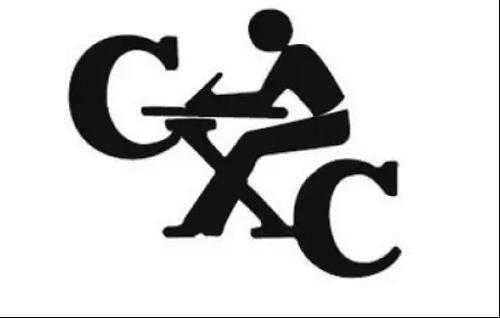
3 minute read
THOUGHT FOR TODAY
The
(1564-1616)
Advertisement
Study Success
Dear Student,
Welcome dear friend. Be aware that the body is a communicating tool; do not forget this. Look, your friend’s actions communicate his stand on a matter, and you understand him. Not so? Like- wise, your body constantly “talks” to others whether you want it to or not. Look around your classroom right now; notice how much each member is telling you about himself without uttering a word. The entire classroom constantly communicates its determination to be winners. Be wise.
February 19, 2023
Love you.
IMPROVING READING
Finding out what a passage is saying
The Passage:
There’s not many things to do, Jessie, but you had better take this map so that you don’t get lost, and you can mark on it where you have to go. When you come out of the house, turn left and go down to the junction. Turn right, go past the swimming-pool and you’ll come to Main Street. There you turn left and go along the street, over the bridge. On the other side of the bridge there’s a crossroads; if you go straight across it you’ll find the shopping centre on your left. Go in there and buy the things on my list. When you come out again, look for Turton Road, and go along it to the end. You’ll see a football ground ahead of you. Go in there and buy two tickets for the match this afternoon. From the football ground, turn left towards the river, and go on until you come to Riverside Road. There you turn left and then immediately right again and then a little further along there’s a cinema on a corner to your left. Please go in there and get their programme of forthcoming films. Then you can come home along School Road – go all the way along it until you get to Main Street again, which you cross, and you’ll find a little path behind the swimming pool; it’s a short cut home.
Something to Do
1. What do you think is the language function of the passage? Substantiate your response based upon the passage structure.
2. Are there other situations you know that benefit from such language structure? List it or them.
3. Can you tell the relative age of the sender to the person being sent? Give support for your answer.
4. Stake out a large area where you live whether of city, town, or village and create a map for it or find some other good place map. Then, write out a route-description for your younger cousin and friends to do an interesting tour of it. Add comments on the scenery, or reasons for them visiting the named places as they go.
5. Get hold of your family tree and briefly write to a close friend presenting information showing why Guyana is not your place of family origin.

What are the things you should, of necessity, include here?
IMPROVING WRITING Good style
Style is the way in which you write or carry out any piece of writing. The way you do it must be suited to your purpose in doing it and to the audience for whom it is intended. This is called good style.
Style reflects your ability to achieve given ends by choosing appropriate means thereby. Let your writing be understood by the intended reader. Let how you clarify information, make good choice of words, and order and arrange your own words fit snugly together. This is using a style of your own.
There are pointers to beware that can mar writing such as: long windedness; pompousness; affectation; slang, jargon, and cliché; and passive and impersonal constructions.
Just try to be plain; direct; use no more words than are necessary; search your vocabulary for the right words; and use active verbs whenever you have a choice.
Remember practice makes perfection.
Something to Do
A. Fill the blank in each of the following with a word opposite in meaning to the bracketed word.
1. He is a (profound) not a ….. thinker.
2. Early on it seemed that he might be good at Geography, for he tackled (simple) co-ordinates successfully, but his limitations were revealed when he was faced with ….. map searches.
3. The old manager’s methods were (rigid), and all the employees hoped for a more ….. approach when his younger successor arrived.
4. The examiners were surprised by her bad performance in the (compulsory) question in view of her good showing in the ….. section of the paper.
5. The dealer was delighted to be offered a (genuine) antique after seeing so many ….. in the course of a busy day.
B. Express in one word the meaning of each of the following.
1. causing, sufficient to cause, or designed to cause death
2. respect highly, confer dignity upon
3, preliminary discourse, sometimes in verse, introducing a play
4. put right, correct, amend, reform
C. Use each of the following expressions in a sentence in such a way as to make its meaning clear.
1. to harp upon
2. to mar the painting
3. a square peg in a round hole
4. to look askance at
5. aide-de-camp
D. The words paired up in this list are often confused. Use your dictionary and then write a sentence for each word, bringing out the different meanings.
1. practical/ practicable;
5. device/ devise
2. fitness/ finesse; 6. precede/ proceed
3. leased/ least; 7. cultured/ cultivated
4. mood/ mode;
8. accept/ except
E. Underline the simple or compound subject for each of the following sentences.
1. A car and a pick-up were leased from our district office.
2. Increases in our prices must be approved by our marketing manager.








